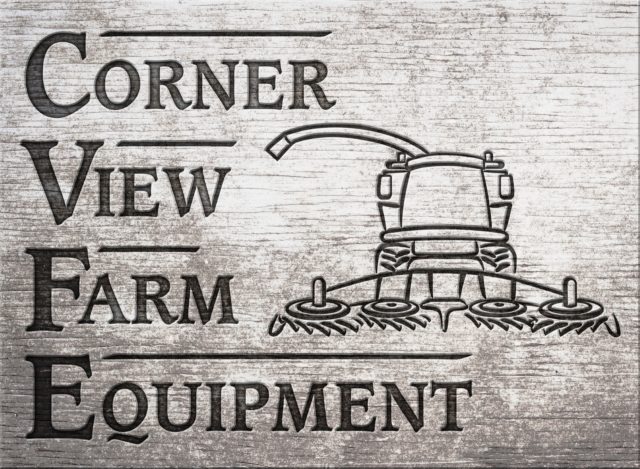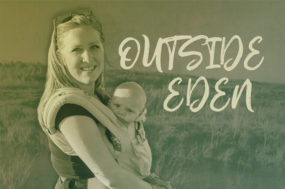LACEFIELD: I grew up on a crop/livestock farm and have been associated with agriculture all my life. I didn’t know what direction I was going to go until I went to the University of Missouri and did my masters work in weed science.
While I was there, a research proposal came about that involved doing some physiology and biochemistry on alfalfa. I had always had a passion for alfalfa, so this really drew me over to the forage side of agriculture.
Once I finished my degree, I was able to secure my job as forage extension specialist at the University of Kentucky, and I have never looked back.
Q. What role do you play in the forage industry today?
LACEFIELD: I consider myself an advocate for alfalfa in my state and throughout the South. The more I have worked with alfalfa, the more I have come to respect just how great it can be, even in the warmer South.
It is a crop that has so much to offer as I have seen it perform very well and fill so many different needs in agriculture.
Although I serve as an extension forage specialist, I feel I need to be helping promote and raise awareness for alfalfa and all forages anywhere I am able to. Most people really don’t understand just how important they are to agriculture and the U.S. in general.
Q. What concerns are you currently addressing as an extension forage specialist?
LACEFIELD: From a forage perspective, we are always looking at ways to improve efficiency, economy and the environment. Here in Kentucky, we have, over the past few years, come through two periods of extreme drought.
Many pastures and other forages have really been stressed and abused to the point we are going back into many areas and rebuilding what was lost.
Part of the difficulty with that has been the increased input costs of fertilizers, fuel and equipment. Efficiency has become one of the most important parts of rebuilding, and many people I talk to are wanting to find the best way to replace what was lost and avoid those losses in the future.
In this era of needing to consider all forms of energy and inputs, alfalfa and other legumes are really catching the eye of many people.
Because they have the ability to fix nitrogen from the air and, in many instances, are able to withstand grazing while under drought stress, these legumes have created a winning way to address many efficiencies and problems we currently face.
In addition to the rebuilding, we are also spending a lot of time and energy looking into grazing and grazing management. Not only here in Kentucky, but throughout the U.S., this has become a topic of increased interest.
Of the eight or nine conferences I have attended over the past few months, every one has brought up the importance of grazing or legumes.
Right now in my 34 years as an extension forage specialist, I don’t think I have seen greater needs, greater opportunities and greater interest in forages than I am seeing today.
Many producers are realizing they need to do a better job with their forages. When nitrogen was less than $0.25 a pound and corn was $1.50 a bushel, producers could compensate poor-quality forages and pasture by simply feeding something else.
All of that has changed, and from either an economic or survival standpoint, producers are finding they have got to use the best information, the best practices and the best plants in order to make agriculture work.
Q. What mistakes do you see most alfalfa growers make?
LACEFIELD: The biggest problem I see in growing alfalfa and other forages is timeliness. I realize that weather and other farming practices can play into growing and harvesting forages, but unless timeliness is brought to the forefront of forage raising, maximum gain for producers will never be realized.
For example, for every day an alfalfa field is delayed in harvesting past the bud stage, a producer loses about five relative feed value points with his crop.
If growers seed fields outside the best windows of opportunity in either the spring or fall, stands don’t establish like they should and weeds and undersized yields take their toll on overall production.
Without timeliness of critical operations, from seeding to spraying to baling, a producer can fall from profitability to break-even to loss without even realizing what really happened. I realize that some things are unavoidable, but too many producers don’t realize the impact of timeliness in their operation.
Because it is such a grey area in farming, we lull ourselves into thinking that we will be fine to miss it this time around, but that is where even the best-managed farms can run into trouble. Timeliness is really the decision and action that brings the art and science for forage production together.
Q. What changes do you see occurring in the forage industry in the future?
LACEFIELD: I am optimistic that the industry is going to continue to have better tools to do its job. Those would include better genetics, better management, better equipment and better pest control agents, which all continue to provide ongoing opportunities for growers to be successful.
I would say companies that provide these management tools to producers will need to continue to do their job in providing the evidence these products or services are an economically effective tool for forage producers.
I would also say that for many years, the extension system throughout the U.S. has been able to evaluate many of these tools, but it is becoming increasingly difficult to do so under the current budget constraints that many land-grant universities are facing.
It will be increasingly important that companies find ways to independently verify their products to producers. Farmers are much more savvy than they used to be and are not going to be taken by less-than-effective tools that used to be passed around the industry.
While I am encouraged by this trend, I am also concerned that there will not be enough independent resources to provide this unbiased information in the coming years. It is going to be one of the great challenges of the next decade.
One last thing I would throw into the hat for the future is that producers need to become more active in state and national organizations that represent forage growers and agriculture in general.
We continue to slowly shrink in numbers and without a unified voice and support of farming ideals, we will continue to see our influence and importance shrink over time.
With forages playing such a huge part of feeding the nation, it is critical that we take the time and energy necessary to stand up and let people know what we are about and the good we do for agriculture, the environment and America in general.
We need to continue to do the things we know work well and do those things better over time. If we our jobs well, we will continue to succeed. FG
Dr. Garry Lacefield
Extension Forage Specialist









